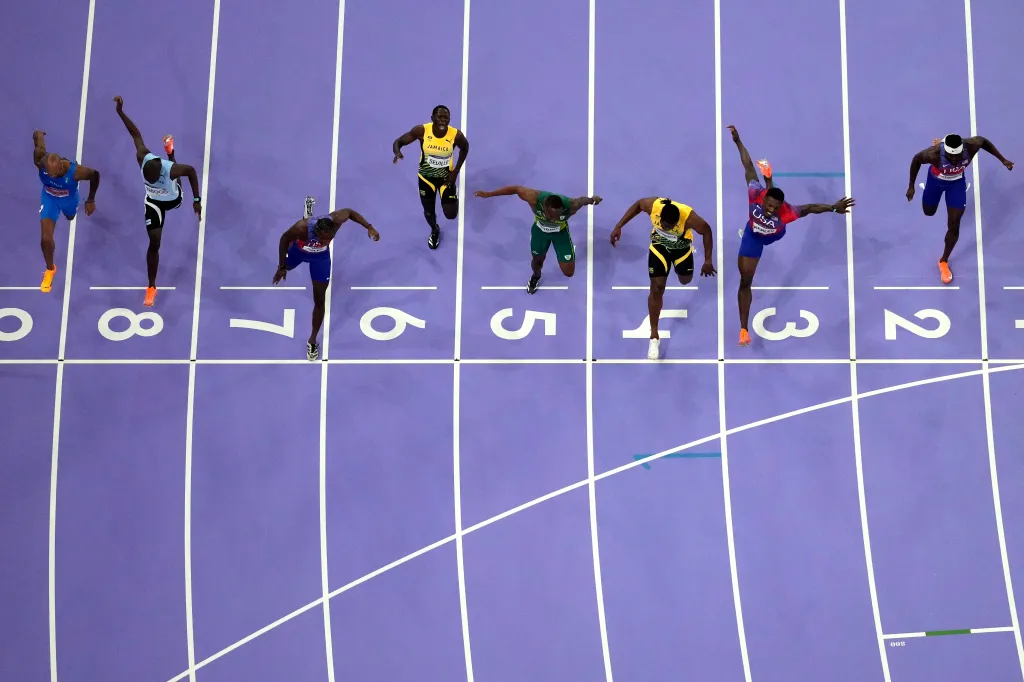Olympic Racing Proves the Importance of Latency

The Olympic 100-meter dash was decided in 5 thousandths of a second: A microscopic difference between being the fastest man in the world and someone else. In the background of this result was a fascinating--and decisive--technical detail: the starter. If engineers hadn't solved latency issues, the fastest man would have lost the race!
Traditionally, the starter was a race official firing a blank round on the inside of the track. AV experts in sound design and live events might notice one potential issue with this: the speed of sound. The speed of sound is fast--343 meters per second to be specific--but that's slow enough to matter in some contexts, such as large concert venues.
The modern start system is different. It's an electronic signal sent to a speaker at the base of each starting block (below). The electronic signal travels at the speed of light, which is 300 million m/s, or roughly 1 million times faster than the speed of sound. This means distance needs to be much, much, much farther before latency matters.

Back to the Olympic 100-meter dash: The winner, Noah Lyles, was in lane 7. Second place, Kishane Thompson, was in lane 4. A running lane is about 1.2 meters wide, so mean Noah Lyles was about 3.6 meters farther from the inside of the track than Kishane Thompson. If they used the traditional starting pistol, Noah Lyles would have heard the signal at a delay: 3.6 meters/343 meters per second = .01 seconds. That's a tiny amount of time, but it is more than enough to decide the race. If they had used the traditional starter pistol, it would have turned the fastest runner's .005 second victory into a .005 second loss!
Two takeaways: First, thank you to the engineers who understand latency and the situations where the speed of sound is slow enough to have an impact. Second, latency matters! It can be an annoying quality issue in AV, and the Olympic 100-meter dash just proved it can sometimes make a world of difference.






Please sign in or register for FREE
If you are a registered user on AVIXA Xchange, please sign in